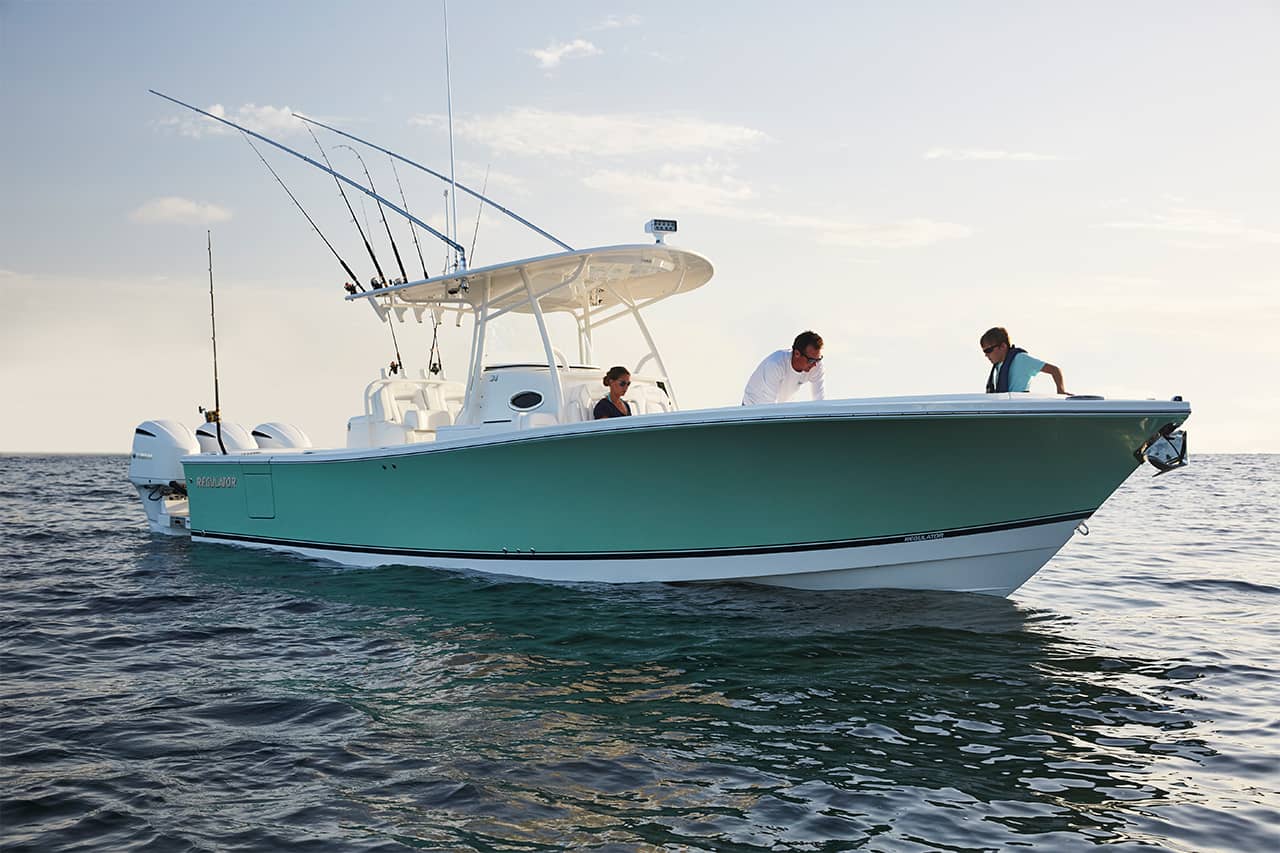5 Things To Ask When Shopping for a Used Boat
So you’ve been shopping for a used boat and identified a boat you’re excited to see. Online everything looks great, it seems well-maintained, is in the right price range. Admittedly, you’re already envisioning casting off the platform at first light or towing your kids on tubes in the lake. Ideally, most of these details are covered in their BoatsForSale.com listing, but you should follow up when you meet in person to confirm. Whether you’re in the market for a basic fishing boat or a lavish yacht, there are some things you need to ask the seller before pulling the trigger as you are shopping for a used boat.

More manufacturers have begun to offer transferrable warranties. It’s worth looking into.
Is the boat under a transferable warranty?
Most boats come with a non-transferable warranty, good only for the original owner, but this isn’t always the case.
Some manufacturers have begun to make them transferrable. Besides the boat on the whole, if the engines have been replaced, they carry warranties of their own. Furthermore, some sellers, when purchasing a used boat from a dealer, may add on an extended warranty which can last six to either years. Though the chance is slim, having a warranty even for a few months can ease your mind as it gives you a fair amount of time to explore and test your boat and all its features. So be sure to make this a focus when shopping for a used boat. – it’s worth it!
What kind of use has the engine experienced, and are they original to the boat?
You already likely know the engine hours because it’s a suggested field on a BoatsForSale.com listing.
But it’s worth asking, especially for boats that are multi-purpose: were you mostly trolling, or were you towing at wide-open throttle for most of those 1000 hours? And obviously, you’ll want to know if it was used in salt and/or freshwater because saltwater corrodes metal 10x faster than freshwater, and the roll of the ocean is much harder on the hull. For Part B of this question, don’t make the mistake of assuming the boat’s only been in the water for the engine run time. We’re not just talking about a boat being docked in the water, either. Try and find out how long the previous engines were run to see how many hours the boat’s been out in the elements.
What was the boat’s maintenance schedule like?
Ideally, the seller has an organized file of maintenance receipts and reports.
What you’re ultimately looking for here is regular, preventative care, not just reactionary repair and replacement. Be sure to ask which things are not original to the boat, and why they were replaced. And if anything has been recently replaced, be absolutely sure to pay extra attention to it during a sea trial. And don’t forget the trailer. Ask if the same maintenance was paid to the trailer. You don’t want to trail a pristine used boat on a rusted-up trailer with a rotted out wire and broken taillight.

Getting a detailed history of maintenance, updates, and upgrades is essential to assessing the boat’s potential and value. Consider getting a boat surveyor to inspect every last detail.
Are you the original boat owner?
If someone has had the boat for an extended period of time, they know the boat well and have been responsible for its recent maintenance and condition, but if it’s been a short time and they are not the original owner, ask them for details about who they bought it from.
Ask about the condition they purchased it in and any surprises after they purchased it. This extra intel will ease your mind about possible previous misuse or extended use not normally included in the current seller’s listing.
What did you love the most about this boat?
Here you’ll find out just how much the seller cared for the boat you may be making your own.
What they tell you might reveal its truest use, even more so than if you ask them why they’re selling it (Ask this too! Evasive answers might be a red flag, but likely it’s just time for something new, just like you’re doing).
For the Win
Buck up and hire a professional boat surveyor.
Charging on average $18-$25 a square foot, rest assured that this significant purchase has been reviewed by someone who knows what they’re looking for. A marine surveyor will conduct an out-of-water inspection, trial at sea, a test of all systems, and report on all of it for you. When you buy a house, you likely had an inspection. No reason it should be any different for your boat. Discoveries might not be dealbreakers, but you’ll know what you’re getting into, and these items might be points of negotiation between you and the seller.
